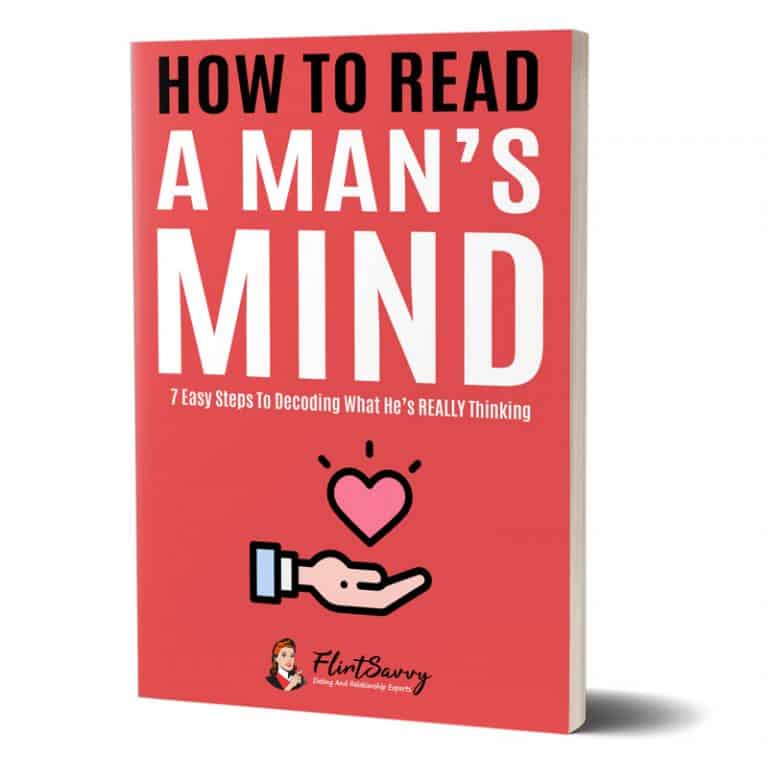Have you ever found yourself saying something unkind to your significant other?
Maybe you’ve noticed that every little thing they do seems to annoy you, leaving you with a constant urge to lash out.
It’s easy to get frustrated with the people we love, but being mean to your partner is never okay. Relationships are built on mutual respect and love, and treating your partner poorly can cause irreparable damage.
In this article, we’ll explore why you might be struggling with being mean to your boyfriend and what you can do to change before it’s too late.
Let’s dive in.
Why Am I So Mean To My Boyfriend?
If you find yourself constantly lashing out at your boyfriend, it’s important to take a step back and examine why you might be feeling this way.
One possibility is that you’re experiencing emotional triggers within the relationship. Emotional triggers are often associated with past difficult experiences or traumas, and can cause intense emotional reactions. These triggers can be different for everyone, but common situations within relationships that trigger intense emotions include rejection, betrayal, disapproval, unjust treatment, or feeling misunderstood.
It’s important to identify your specific triggers and learn how to deal with them in a healthy way. This can involve seeking professional help or therapy to work through past traumas and develop coping mechanisms.
Another possibility is that you might be taking out your frustrations from other areas of your life on your boyfriend. Stress from work, family issues, or personal struggles can all contribute to feelings of anger and frustration that may manifest in your relationship.
In these cases, it’s important to communicate openly with your partner about what’s going on in your life and how it’s affecting you. It’s also important to find healthy ways to manage stress and prioritize self-care.
Understanding The Root Cause Of Your Meanness
If you find yourself being mean to your boyfriend, it’s important to understand the root cause of your behavior. One possibility is that you might be struggling with low self-esteem or feelings of unworthiness. This can lead to a defensive attitude and a need to assert dominance or control in the relationship.
Another possibility is that you might be dealing with unresolved emotional issues from your past. Childhood trauma, abandonment, or neglect can all contribute to feelings of anger and resentment that may be directed towards your partner.
It’s important to identify these underlying issues and work through them in a healthy way. This can involve seeking therapy or counseling to address past traumas and develop new coping mechanisms. It’s also important to communicate openly with your partner about what you’re going through and how they can support you.
Remember, being mean to your boyfriend is not a reflection of his worth or value as a person. It’s important to take responsibility for your actions and work towards creating a healthier and more positive relationship dynamic.
The Impact Of Your Behavior On Your Relationship
It’s important to understand that your behavior in a relationship can have a significant impact on its overall health and success. If you find yourself being mean or lashing out at your boyfriend, it’s important to consider the consequences of your actions.
Firstly, being mean can damage trust and intimacy in the relationship. If your partner feels attacked or belittled, they may become defensive and less willing to open up to you. This can lead to a breakdown in communication and a lack of emotional connection.
Secondly, being mean can create a toxic environment within the relationship. Toxic relationships are marked by characteristics such as disrespect, control, and emotional abuse. If your behavior is consistently hurtful towards your partner, it can create a cycle of negativity that can be difficult to break.
Lastly, being mean can also impact your own mental health and well-being. If you’re constantly feeling angry or frustrated in your relationship, it can take a toll on your emotional state and overall happiness. It’s important to prioritize self-care and find healthy ways to manage your emotions in order to maintain a healthy relationship.
Tips For Communicating Effectively With Your Partner
Effective communication is essential for building and maintaining a healthy relationship with your partner. Here are some tips to help you communicate effectively:
1. Practice Active Listening: Listening is a crucial part of effective communication. When your partner is speaking, give them your full attention and try to understand their perspective. Avoid interrupting or dismissing their thoughts and feelings.
2. Use “I” Statements: When communicating your own thoughts and feelings, use “I” statements instead of “you” statements. For example, instead of saying “You never listen to me,” say “I feel like my opinions aren’t being heard.”
3. Avoid Blaming or Criticizing: Blaming or criticizing your partner can lead to defensiveness and resentment. Instead, focus on expressing your own emotions and needs without attacking or blaming your partner.
4. Be Clear and Specific: When discussing issues or problems, be clear and specific about what you’re feeling or what you want from your partner. Vague or general statements can lead to confusion and misunderstandings.
5. Take Responsibility for Your Actions: If you’ve made a mistake or hurt your partner’s feelings, take responsibility for your actions and apologize sincerely. Avoid making excuses or deflecting blame.
By implementing these tips, you can improve your communication skills and build a stronger, healthier relationship with your partner. Remember that effective communication takes practice and effort, but the rewards are worth it.
Strategies For Managing Your Emotions And Reactions
Managing your emotions and reactions is essential in any relationship, especially when dealing with intense feelings like anger or frustration. Here are some strategies to help you manage your emotions and reactions in a healthy way:
1. Take time to think: When you feel overwhelmed by emotions, take a step back and reflect on what’s causing them. Writing down your feelings and reactions can help you identify patterns and triggers, allowing you to come up with more productive ways to manage them.
2. Take responsibility for your own mood: Remember that you cannot control your partner’s mood, but you can control your own. Avoid indulging in your emotional reactions, as this can often make the situation worse. Instead, focus on managing your own emotions and responding strategically.
3. Lighten up: Humor can be a powerful tool in diffusing tension and managing emotions. Laugh at yourself and avoid sarcasm or passive-aggressive behavior.
4. Communicate calmly: When you’re upset with your partner, take a moment to calm down before communicating your feelings. Use “I” statements to express how their behavior makes you feel, rather than attacking or blaming them.
5. Recognize the signs of anger: Pay attention to physical signs like a fast heartbeat, tense shoulders, or sweating that may indicate you’re getting angry. Take deep breaths and find ways to calm down before reacting.
By implementing these strategies, you can learn to manage your emotions and reactions in a healthy way, promoting intimacy and maturity in your relationship.
Seeking Professional Help If Needed
If you find that your meanness towards your boyfriend is becoming a pervasive issue in your relationship, seeking professional help may be necessary. Therapy can be an effective treatment for a host of mental and emotional problems, including anger management issues.
A therapist can provide a safe and non-judgmental space for you to explore the underlying causes of your meanness towards your partner. They can help you identify patterns of behavior and thought that may be contributing to your anger, and work with you to develop healthier coping mechanisms.
It’s important to choose a therapist who you feel comfortable with and who has experience working with anger management issues. A good therapist will help you become more self-aware and give you the tools to make positive changes in your life and relationships.
Remember, seeking professional help is not a sign of weakness, but rather a proactive step towards improving your mental health and well-being.
The Importance Of Self-reflection And Personal Growth
Self-reflection is a crucial aspect of personal growth, and it can help you better understand your emotions and behaviors within your relationship. By taking the time to reflect on your thoughts and actions, you can identify patterns and triggers that may be causing you to act out towards your partner.
Self-reflection also allows you to take responsibility for your own emotions and reactions, rather than placing blame on your partner. This can help you communicate more effectively and avoid unnecessary conflicts. Additionally, self-reflection can lead to increased self-awareness, which is essential for building healthy relationships.
Personal growth involves continuously working on yourself and striving to become the best version of yourself. Self-reflection is a key component of this process, as it allows you to identify areas for improvement and set goals for yourself. By prioritizing personal growth, you can become more confident, fulfilled, and satisfied in your life and relationships.
It’s important to make time for self-reflection on a regular basis. This can involve journaling, meditating, or simply taking a few minutes each day to check in with yourself. By making self-reflection a habit, you’ll be able to better understand yourself and your relationship, leading to greater happiness and fulfillment in all areas of your life.






